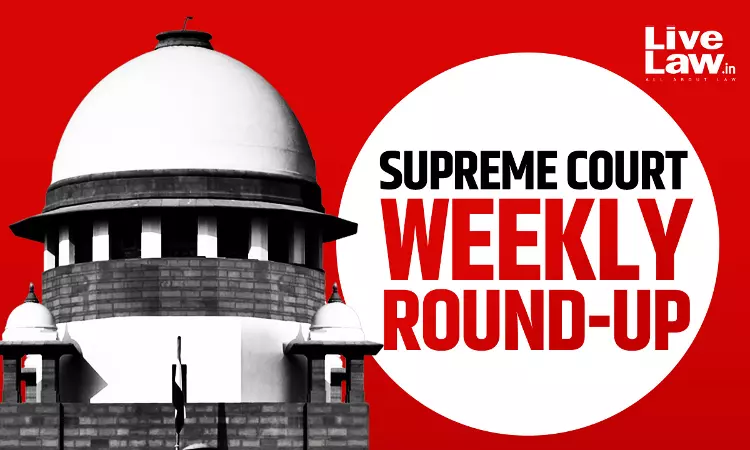Supreme Court Weekly Round-up: October 21, 2024 To October 27, 2024
Amisha Shrivastava
29 Oct 2024 9:25 AM IST

Next Story
29 Oct 2024 9:25 AM IST
IndexCitationsBank of Rajasthan Ltd. v. Commissioner of Income Tax 2024 LiveLaw (SC) 817Horrmal (Deceased) through his LRs and Ors. v. State of Haryana and Ors., SLP(C) No. 007963 - / 2023 2024 LiveLaw (SC) 818Mafabhai Motibhai Sagar v. State of Gujarat & Ors. 2024 LiveLaw (SC) 819Ratilal Jhaverbhai Parmar & Ors. v. State of Gujarat & Ors. 2024 LiveLaw (SC) 820Shyam Narayan Ram...
